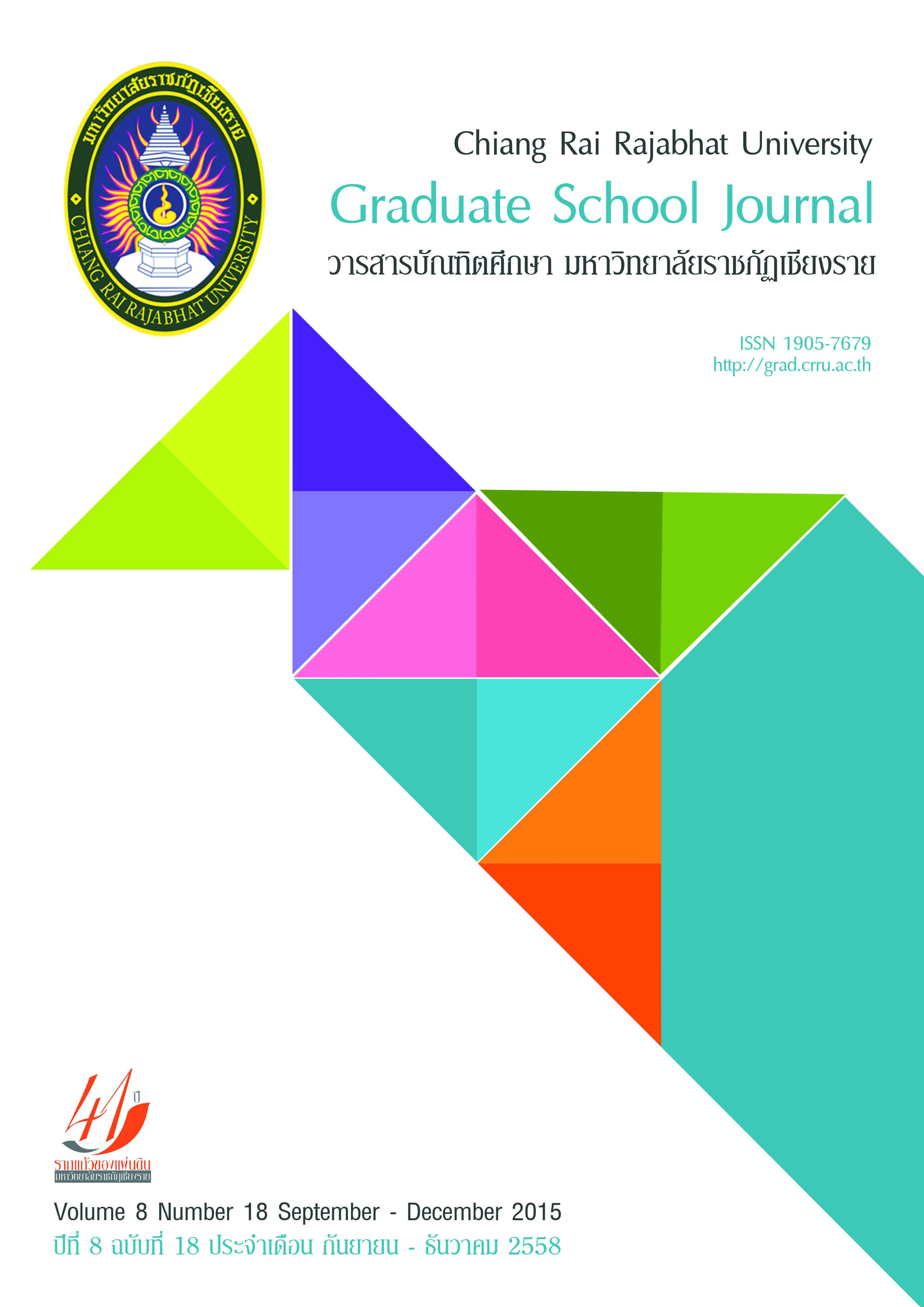การจัดประสบการณ์เกมการศึกษาตามแนวคิดสมองเป็นฐานเพื่อพัฒนาทักษะคณิตศาสตร์ของเด็กปฐมวัยชั้นอนุบาลปีที่ 2
Main Article Content
บทคัดย่อ
ผลการวิจัยพบว่า มีค่าประสิทธิภาพของแผนการจัดประสบการณ์เท่ากับ 81.67/86.42 ซึ่งมีประสิทธิภาพสูงกว่าเกณฑ์ 80/80 ที่กำหนดไว้ ผลการเปรียบเทียบทักษะคณิตศาสตร์ของเด็กปฐมวัยชั้นอนุบาลปีที่ 2 โดยการจัดประสบการณ์เกมการศึกษา ตามแนวคิดสมองเป็นฐานมีคะแนนหลังการจัดประสบการณ์เฉลี่ยร้อยละ 89.42 ซึ่งสูงกว่าก่อนการจัดประสบการณ์มีคะแนน เฉลี่ยร้อยละ 85.42 และผลการศึกษาพฤติกรรมการเรียนรู้ของเด็กปฐมวัยชั้นอนุบาลปีที่ 2 ที่ได้รับการจัดประสบการณ์เกมการ ศึกษาตามแนวคิดสมองเป็นฐาน ทั้ง 4 ด้าน โดยภาพรวมอยู่ในระดับ มากที่สุด ซึ่งเป็นไปตามสมมติฐานของการวิจัยที่ตั้งไว้
Learning Management by Educational Games on Brain-Based Learning Lesson Plan for Development of Mathematical Skills for the Second Year Students of Kindergarten
The purpose of this study were to develop and to test the efficiency of a lesson plan based on educational games on brain-based learning approach focusing on 4 skills: observation, comparison, classification, and accounting skills. The other objective of this study was to compare mathematical skills and to investigate the learning behaviors of the second year students of kindergarten before and after participating in educational games on brain-based learning lesson plans.
The research population was a group of 30 students aged 4-5 years in their first semester of second year of kindergarten during the academic year 2014 in Pong Municipality School, Pong District, Phayao. The research instruments included 8 lesson plans, a mathematical skill test and behavior observation forms approved by 3 specialists with high level of appropriation.
The research findings indicated that the efficiency of lesson plans regarding the standardized criteria was 81.67/86.42, which were above the expected criteria of 80/80. After the treatment by educational games, the average score of mathematics skills of the experimental group increased from 85.42 to 89.42. Overall, the results revealed that the learning behaviors of the students participating in educational games focusing on 4 learning skills reached higher levels in accordance with the hypotheses of this research.
Article Details
บทความที่ได้รับการตีพิมพ์เป็นลิขสิทธิ์ของวารสารมหาวิทยาลัยราชภัฎเชียงราย
ข้อความที่ปรากฏในบทความแต่ละเรื่องในวารสารวิชาการเล่มนี้เป็นความคิดเห็นส่วนตัวของผู้เขียนแต่ละท่านไม่เกี่ยวข้องกับมหาวิทยาลัยราชภัฎเชียงราย และคณาจารย์ท่านอื่นๆในมหาวิทยาลัยฯ แต่อย่างใด ความรับผิดชอบองค์ประกอบทั้งหมดของบทความแต่ละเรื่องเป็นของผู้เขียนแต่ละท่าน หากมีความผิดพลาดใดๆ ผู้เขียนแต่ละท่านจะรับผิดชอบบทความของตนเองแต่ผู้เดียว


